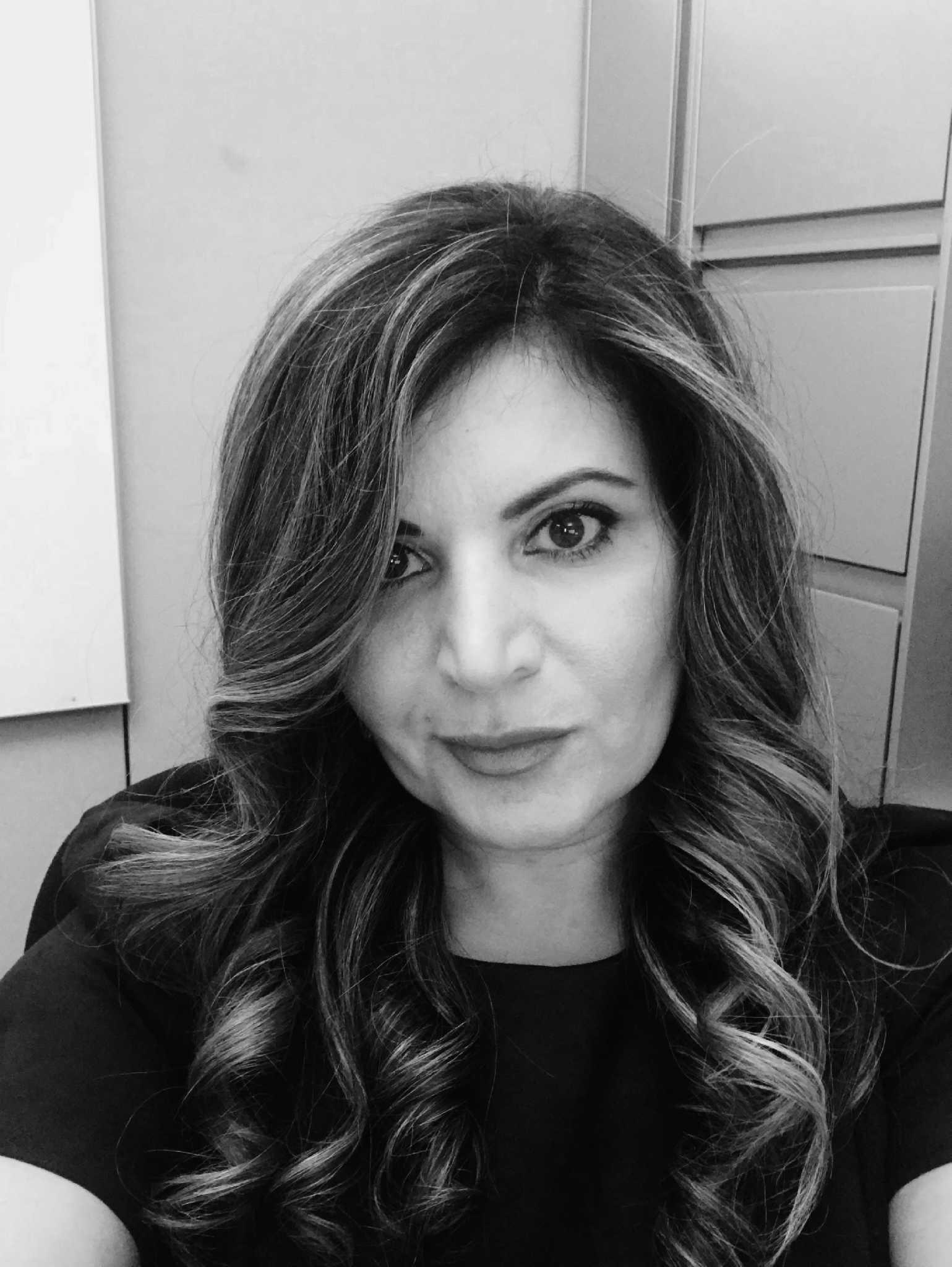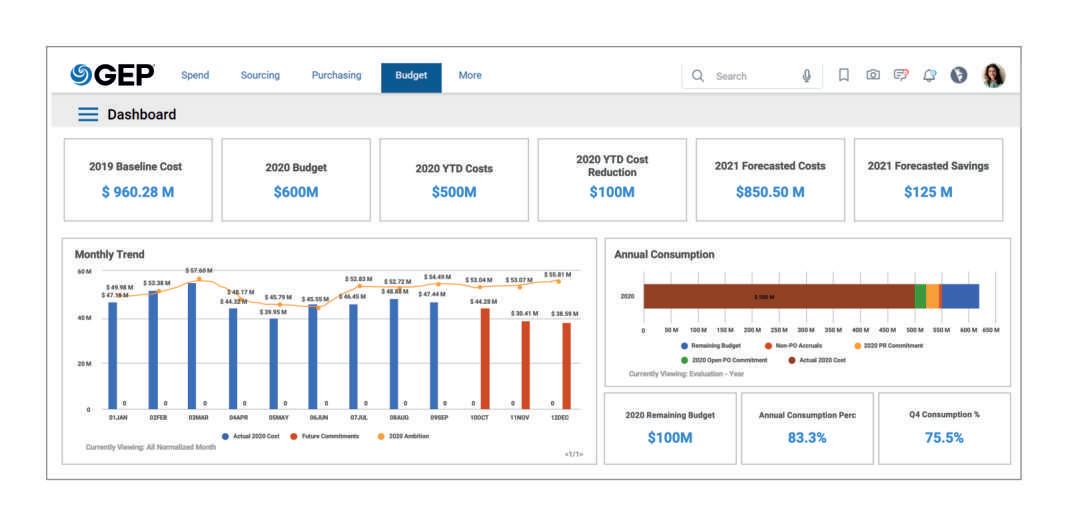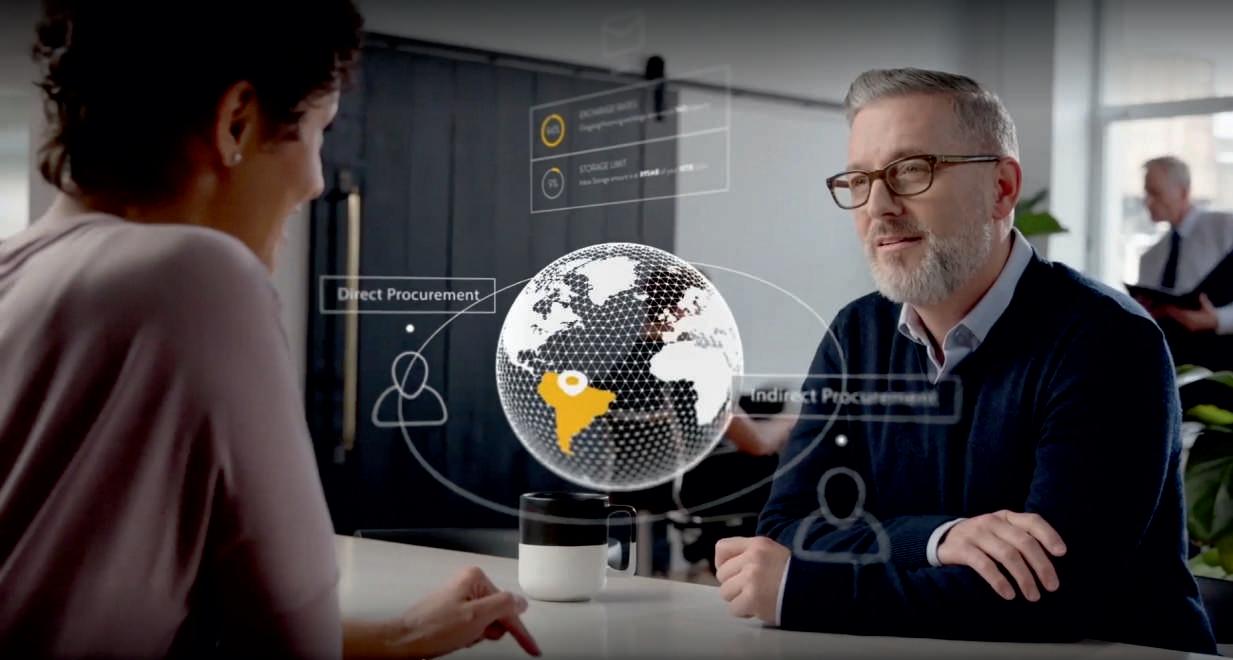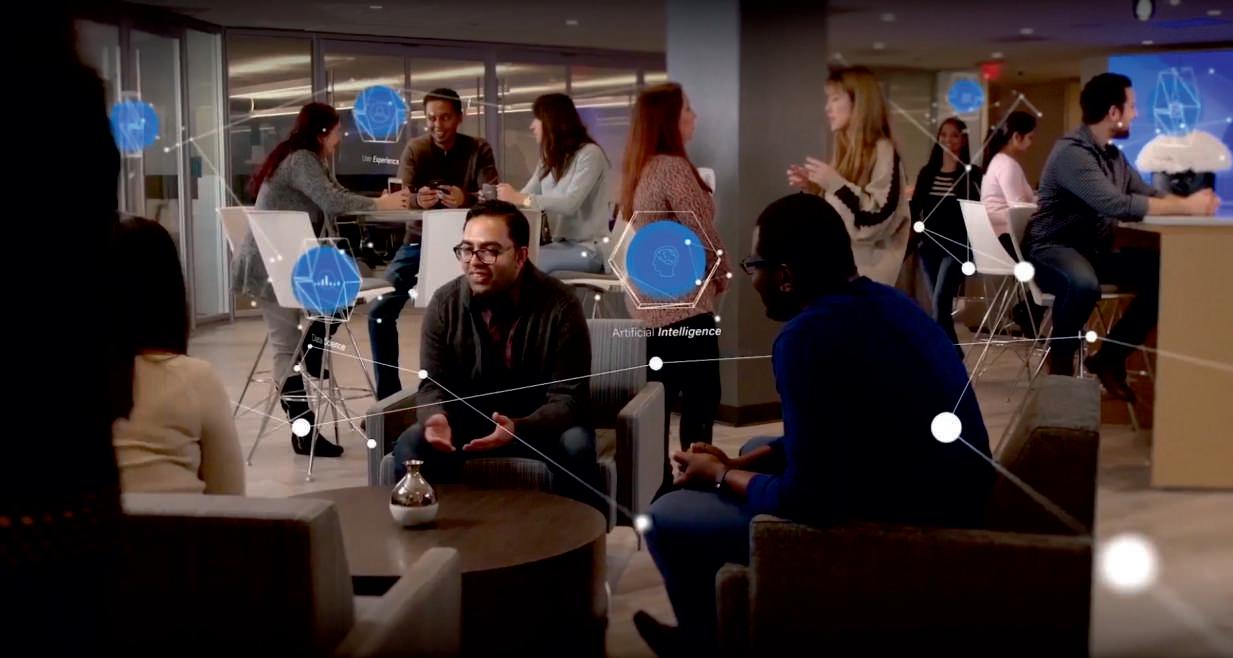
14 minute read
Mariam Saad
Director of IT, Technology Services, Professional Services Procurement
TELUS
The 10 Most Influenal Women in Supply Chain, 2022
Mariam Saad
Maximizing Profitability in Supply Chains
The transition in the supply chain industry is near. To realize this change, it’s essential to understand the end-to-end supply base mapping and focus on sustainable efforts. Implementing several aspects in the workplace will align with the massive shift caused by the pandemic concerning global consumer mindsets towards environmental issues. Preparing for this change is Mariam Saad, a multi-lingual leader with 20 years of highly skilled experience in procurement, operations, and sales, across multiple global and national organizations in telecommunications, mining, and information technology. As the Directorof IT, TechnologyServices, and ProfessionalServicesProcurement for TELUS, Mariam leads towards an extensive transformational initiative as the company seeks to grow and mature its capabilities. She is recognized for effectively leading and managing concurrent initiatives while consistently achieving strong results.
TELUS is building a better future for all Canadians by using its technology for good and giving back to its communities. Its social purpose is at the heart of everything it does as a world-leading technology company, and TELUS continues to set itself apart to make the future friendly together.
The Initiation
Mariam graduated with an International Business Commerce Degree from Concordia University in Montreal, with a Minor Degree in Marketing. Following the Degree from Concordia, she then pursued a 1.5-year Leadership Certificate at the Executive McGill MBA Program. Having worked across multiple industries, including Information Technologies, Natural Resources, and Telecommunication, she developed extensive experience in IT sales and procurement operations. Throughout her career, she focused on revenue generation, cost savings, delivery, and value creation. She took the opportunity to utilize the experience and expertise with each successive role to sharpen her focus on value generation.
Throughout Mariam's career, she faced numerous diversity and inclusiveness challenges. In her early sales career, she was the only woman amongst a team of 10 men. As a result, she constantly felt that she had to work twice as hard to prove herself.
Moreover, she faced additional adversity coming from an immigrant ethnic background, which she had to overcome throughout her journey. She says, "Whether working in IT or the mining industry, there were very few women, and almost none existed as you moved up the ladder. “Mariam expresses that support for women was incredibly lacking during the first few years of her career. There were no forums where women could connect, receive support or share experiences. She had many female colleagues that constantly reached out to her to share their challenges. Instead of seeing this as an obstacle, she thought about taking charge and making a difference. To that end, Mariam co-founded the first women network at her previous company and opened the first chapter in Montreal. Mariam received an overwhelming response, and people worldwide became involved asking to join the Montreal chapter. As a result, she negotiated a budget to launch 10 other local chapters worldwide. Today, Mariam enjoys mentoring young women and new immigrants to help them integrate into or succeed in their workplace.
When you're with TELUS, you're part of a network of giving.
The Impactful Expertise
Mariam expressed that sharing and collaboration are integral parts of learning and growth. At TELUS, she strives for continuous improvement and value creation, ensuring that she is constantly learning and educating herself, her team, and the business on the latest technologies. She is also sought after to speak at events such as Supply Chain Digital or round tables with Procurement Leaders, Supplier Diversity events, or within IT Summits to discuss the latest issues and trends in the IT and Digital space.
She surrounds herself with a great network of colleagues, and team members, enabling learning and professional growth; she believes that giving back to her team, TELUS, network, and suppliers is a privilege and a responsibility to give back what others have done for her.
Most recently, Mariam had the opportunity to speak at many events sharing her thought-leadership about the effects of the pandemic and its role in accelerating digital transformation and about Cloud transformation, evolving strategy between private, public, single, and multi-cloud vendors. Mariam is proud to be a thoughtful contributor to these critical discussions.
Value-Driven Methodology
Mariam states that TELUS has key pillars from a cultural evolution focused on innovation, growth, change, teamwork, and risk. TELUS drives a collaborative work environment that fosters growth and development in individual and team culture and innovative perspectives. This environment encourages team members to look for new opportunities while approaching risk-taking with an opportunistic and experimental mindset. Everyday innovation is focused on nurturing the mindset, behaviours, and environment required to inspire the courage to drive innovation to a cultural standard across all levels and value chains at TELUS.
Innovative Technological Solutions
With respect to leveraging technology to drive business objectives, Mariam highlted that TELUS is committed to making the future friendly by connecting Canadians through technological solutions that create value within communities and connecting with technology partners to advance the digital transformation journey.
Agriculture:TELUS is on a mission to tackle some of the most significant social challenges of the generation using technology for good and empowering growth in agriculture and feeding the world by connecting the underserved rural world with communication capabilities. TELUS fosters the exchange of digitized information to help all parties operate more efficiently. Connected solutions for farm management, optimized profitability, increased efficiency, and insights.
Healthcare: TELUS is streamlining health records and data, building powerful digital healthcare tools for hospitals, doctors, pharmacists, and more, to help support healthcare providers. TELUS heavily invests in virtual care to access all Canadians to receive quality care anytime and anywhere. TELUS has invested over $2.5Billion in healthcare in the last decades; it has $12Million Canadians covered by TELUS Health Benefit management solutions.
Partnerships:TELUS's ecosystem of partners is crucial to Mariam. The company has built strategic partnerships, allowing it to build some of the world's fastest, highest quality networks to lead in the Healthcare Technology and Customer First approach.
Over the Horizon
Mariam loves her work and envisions herself constantly learning and growing in her space, helping shape and change the supply chain industry to advance it and solve real problems. She is proud to assist "feeding the world" by improving TELUS' food quality and safety by leveraging technological innovation and human compassion. She is excited to be a part of the healthcare initiative that will impact the world positively. She sees herself mentoring supply chain professionals, fostering a diversity and inclusiveness culture, and soon leading a procurement or supply chain organization.
Bequeathing Budding Entrepreneurs
Mariam advises up-and-coming entrepreneurs to prepare themselves for a wonderful ride. She says, "You are going to witness some of the greatest evolution in this space. We are entering the fourth industrial revolution that will challenge current ways of working and the need for some of the most pressing issues in the world. It is where entrepreneurs can use their experience and expertise to witness or drive some of the greatest changes in the supply chain space seen in several decades.”



Monique Alblas
Exemplifying Resilient Leadership
he supply chain is a traditionally male-dominated Tfield. Therefore, being a leader in the supply chain field is not as easy as it sounds for women. It takes courage, zeal to learn, and resilience to be in this field and make a difference. Today, many brave and resilient women leaders have entered this space, are making notable contributions, and are setting inspirational standards for other women. One such inspirational leader in the supply chain industry is Monique Alblas, the Vice President of Consulting at GEPWorldwide.
Let’s shed some light on her journey as a business leader.
Gaining Learning Experiences and Being Best at Consulting
After graduating, Monique joined a small company for which she was asked to set up a separate IT contingent labor company. Being an entrepreneur at such a young age was a tremendous learning experience for her, covering all aspects of a business in which, of course, she also made more than her fair share of mistakes that she had to overcome.
After that, Monique joined a global high tech firm with responsibility for a triple-digit spend portfolio of professional services companies. During this time, she worked with C-suite executives in a male-dominated engineering environment and learned to stand her ground. Working with a wide variety of consultants and seeing the difference they could make in relatively short periods made her realize that being a consultant would fit her like a glove. She notes, “Being a consultant means you always have to bring your A-game. You’re hired to achieve meaningful results. It’s never easy, but I love it.”
Supply chains have also seen a lot of unprecedented challenges over the past years, and Monique joined GEP Worldwide, just as when the world was dealing with the pandemic. One of the major areas of concern, especially in the first few months of the crisis, was the overdependence on China and the inability to procure materials from there and several other parts of Asia. Many enterprises were forced to look for an alternative, and likely more expensive suppliers and solutions.
At GEP, Monique supported several clients with make-orbuy decisions to prevent big losses. She led a team that looked into setting up local and regional production for some of the materials that they could not get via the regular supply chains because of logistical issues caused by COVID-19, as well as collaborations with other third parties to bundle their buying power.
Collaborating and Negotiating With Suppliers
Monique believes that procurement can no longer just focus on volumes and driving down costs to help achieve the company’s larger objectives. Procurement and supply chain leaders need to look for innovative solutions to play a strategic role in achieving company goals. Leaders need to genuinely collaborate with their ecosystem — with their suppliers and suppliers’ suppliers and evolve from a transactional vendor-style relationship.





She says, “To develop an informed perspective on what's going on in the market, and to understand what's possible, it’s paramount that procurement and supply chain leaders collaborate with suppliers and other organizations. This means stepping outside our comfort zones and boundaries of negotiating prices, quantities and lead times to also focus, and assist, suppliers with tracking their environmental impact, cutting waste, sustainability, innovating activities, adopting new digital platforms to share data more easily and gain greater visibility across the entire, multi-step, global supply chain.”
Driving Great Value to Customers and Stakeholders Globally
Founded 22 years ago, GEP is a leading provider of supply chain and procurement software, consulting, and managed services to Global 2000 enterprises worldwide. Its mission is to integrate strategy, software, and managed services so its clients can transform and optimize their supply chains and drive greater value to customers and stakeholders.
With more than 5,000 employees across 24 locations in Europe, Asia, Africa, and the Americas, GEP is continuing to grow by double digits as global companies are accelerating their investment in remaking their supply chains.
Giving Back to Society
Talking about the values and culture of GEP, Monique mentions that it is a privately held, minority, and womenowned business, where giving back is an integral part of its purpose and its DNA.
GEP was founded on six core values, including delighting customers, excellence, and caring. By caring, it means caring for each other as colleagues, for the communities where they live, and for the environment. Monique asserts, “Caring is integral to our culture because it connects our thousands of employees across every office with a common purpose to improve people’s lives.”
Besides, it won Best Places to Work in nearly every other country it operates. Its approach combines a top-down corporate-led program and enables employees to create activities for their communities. It identified four specific social areas for its employees to help address: empowering women; enabling basic education for children; alleviating hunger; and sustainability initiatives to cut its environmental impact. Each year, GEPWorldwide spends between 5% to 10% of its annual profit through direct contributions and matching employees’ initiatives. Last year, GEP’s employees spent more than 20,000 hours undertaking local activities to support women’s development, address hunger, and provide children with access to basic education.
Building Resilient and Sustainable Supply Chains
Monique opines that GEP’s future is bright. It is an exciting time for the company because supply chains and procurement are now a boardroom- and investor-level issue. Companies are accelerating the transformation to build resilient, agile and sustainable supply chains.
Today, companies need redundancy and resilience, as well as speed and cost efficiency, to better manage supply disruptions, inflation, scarcity, and cyberattacks. Companies are also shifting from measuring to cutting the environmental impact of their entire complex supply chains. Furthermore, procurement is now strategic and essential to get costs in line with inflation running more than 7%.
GEP invests heavily in product development, led by ML/AI for advanced data analytics in everything, from real-time demand forecasting — enabling clients to react quickly and be demand-led — to identifying savings and determining what components and services “should cost” to evaluating the performance of suppliers. GEP continues to roll out control towers to identify potential disruptions and issue resolution.
Playing a Pivotal Role in Supporting Companies
In conclusion, Monique expresses, “This is an exciting and important time to be consulting for companies about their global supply chain, and GEP, as a global leader, is ideally positioned. Disruptions in logistics and drastic changes in consumer expectations have sparked an unprecedented focus on supply chain management for C-suite executives. We are now seeing the shift from logistics and supply chain primarily being a back-office function to a boardroom priority. It is only the start as supply chains will continue to grow in complexity. The future survival for organizations now depends on effectively managing the 5Vs of supply chain success: visibility, volatility, velocity, vulnerability and viability. GEP is growing very rapidly, and I’m excited to be playing a pivotal role in supporting companies reimaging their supply chains and adopt new technologies to become more cost-effective, resilient and sustainable.”
Women:
Arcle 2

en:The New TRAILBLAZERS in SUPPLY CHAIN

The 2021 International Women’s Day theme is “Choose to Challenge.” Challenging for bringing change in the world by being aware of the opportunities to create a gender-balanced society in all the sectors. The supply chain industry has been traditionally male-dominated, and it is challenging for women, especially in leadership positions. But trailblazing women leaders are revolutionary in their approach and choose to take up the challenge of being in the supply chain industry and impacting the industry with their courage, passion, guts, and leadership skills.
Women are fearless and believe in their potential, setting exemplary standards for other women leaders and setting the standards for future generations. It takes a lot of knowledge, awareness, bravery, and ability to deal with complex challenges in the supply chain industry to be a trailblazing women leader. Therefore, becoming a trailblazing women leader in the supply chain industry is a laudable feat. Such women leaders become an inspirational example for other women leaders and future generations.
Women leaders are making their presence count and are ready to take on the challenge and proving themselves that they can work productively to make a difference with their skills and abilities. Due to the value women bring to the table, many companies also include women in leadership positions to make better and inclusive decisions.
Trailblazing women leaders play a vital role in ensuring diversity, equality, and inclusion in the supply chain industry and are more judicious in ensuring good overall operations and productivity from all the employees. Women leaders doing good in the supply chain industry naturally significantly impact other women leaders, and it is more inspiring for them to follow such leaders. The women leaders in the supply chain industry should be open to changes in the industry. They should be ready to change themselves with the transformative shifts by innovating various tactics making sound judgments with pre-existing solid knowledge.
Trailblazing women leaders in the supply chain industry prepare themselves well enough to handle the challenges in the supply chain industry and make the best situational decisions. They should resolve the difficulties with fortitude and work hard with all their team members. They should learn from their seniors and pass on what they have learned to others. No two days are the same in the supply chain industry.
Those women who want to enter the supply chain industry should be adaptable and flexible with the continuously changing dynamics in the supply chain industry. They should have the great approach of learning and grasping things quickly, all the constant changes happening in the industry, and accordingly developing the ability to handle all the situations with diligence and making their best contribution by becoming a trailblazing leader in the industry. They should be strategic and have a lot of firefighting ability every day to make the greatest impact in the industry and prove themselves as illustrious leaders in the supply chain industry.



